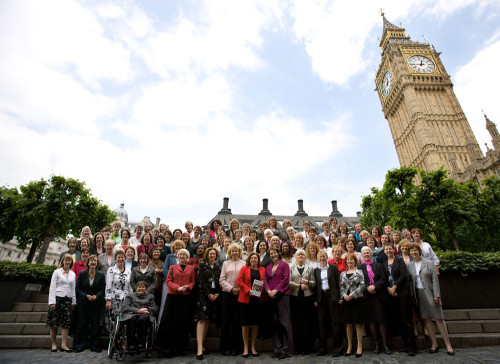
The average MP: a white man aged 51, whose previous job was, most likely, in politics. No matter how you look at it, British parliament isn’t representative and although we’re making glacial progress in some areas – not least gender and race – the number of working class MPs is still decreasing.
That’s why the new scheme launched by GMB to get more working class people in parliament is welcome. The Harry Harpham Parliamentary Programme, named in honour of late MP for Sheffield Brightside and Hillsborough, will give trade union activists and reps work experience opportunities in parliament. Similarly, Unite also has a history of helping people of all backgrounds become MPs. The Labour Party more broadly should take heed.
Since 1979 there’s been a steady decline in the number of working class people on the green benches in the Commons – the year Margaret Thatcher swept to power nearly 40 per cent of Labour MPs had done manual or clerical work. By 2010, it was down to a measly 9 per cent. In this same period, the number of parliamentarians whose CVs listed previous jobs in politics, law or journalism shot up.
What we’ve witnessed since 1979 is the “professionalisation of politics” and it’s part of the reason so many people feel disconnected from mainstream parties. It doesn’t help that the route into Westminster has huge roadblocks: to become an MP you’ve got to go through two costly campaigns that are likely to add up to more than the average salary, and who you know still matters.
It can be difficult to grasp just how unrepresentative British politics is because the definition of what it means to be working class has changed. Successive governments’ failure to put any thought or investment into industry means Britain’s manufacturing base is almost non-existent. As countries like Germany have pumped money into the renewable energy industry, Britain is propped up by the insecure service sector work. “The working class”, which was once a term almost exclusively applied to people who did manual or clerical work, is now largely made up of people working on low-paid zero-hours contracts in shops or care homes, many of whom aren’t unionised and feel abandoned by the political process.
Crucially, “working class” is a broad term but too often it’s just taken to mean white and male. There’s this tempting tendency in politics to lump whole groups of people together as one; “ethnic minority voters”, “women voters” or “the working classes”. Through these categories the population is relatively simple and understandable, and strategy easier to devise but there’s one catch: they don’t give an accurate explanation of reality. Within them there’s huge variation because people can’t just be defined by one aspect of their identity. So when we talk about the “working class” that can mean people of colour, women and specifically women of colour – as well as white men.
Consider this: around two-fifths of people from ethnic minorities live in low-income households – they are part of the working class but they’re likely to face a double (or triple if they’re a woman) discrimination because of their skin colour. While the number of women and minority ethnic MPs is on the rise, they aren’t necessarily from the working classes.
Schemes to help working class people into politics needs to take these differences into account and talk to organisations like Operation Black Vote and The Fawcett Society, which, work to make society equal.
Then there’s the issue of support networks for MPs who are in Parliament. Class prejudice, sexism and racism are rife within the Commons; change doesn’t happen overnight and Westminster can be an alienating place if you aren’t a 51-year- old man. We need to look closely at what’s considered normal and acceptable in politics and political journalism. Strategies and narrative that speak to “normal people” can’t undo political disenfranchisement alone. Politics needs to be a place for everyone and that means actively working to make it representative.




More from LabourList
‘AI regulation is key to Labour’s climate credibility’
Ben Cooper column: ‘Labour needs to rediscover its own authentic populism’
‘Westminster rethought: a new purpose built site and a museum of democracy’